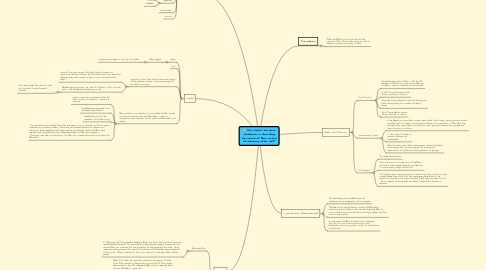
1. Propaganda
1.1. Cheap radios - Goebbels created the Reich Radio company. AS only 25% of Germans owned radios, the government produced cheap sets. By 1939 70% of the population had radios. There was no escaping the Nazi message as loudspeakers were installed in factories, cafes and offices.
1.2. Political posters
1.3. Nurmeburg rallies
1.3.1. The Bund Deutsche Madchen
1.4. Speeches
1.4.1. Hitler
1.4.2. Goebbels
1.5. Indoctrination
1.6. Schools
2. The military
2.1. After the Night of the long knives and the removal of the SA the army swore an oath of allegiance and personal loyalty to Hitler.
3. Youth
3.1. Boys
3.1.1. Hitler Jugend
3.1.1.1. Emphasis was made on the role of a soldier.
3.2. Girls
3.3. Opposition in the Youth came fromm such groups as the Edelweiss Pirates ,, the swing groups and the white rose group
3.3.1. Some of the youth groups did attack military targets and assassinate Gestapo officers but the latter action was limited and ultimately they were caught and put on trial and sentenced to death.
3.3.2. Membership grew from 1 per cent of children in 1933 to 60 per cent in 1936 and became compulsory in 1939.
3.3.2.1. Girls were taught the role of a wife and a mother through domestic activities.
3.4. Nazis wanted to use education to consolidate the Nazi system and indoctrinate the youth with Nazi ideals. In order to achieve their aims teachers had to reinforce Nazi beliefs and values.
3.4.1. Schools were thus centralized under the Reich ministry of education, culture and Science.
3.4.2. Unreliable were removed from the teaching profession
3.4.3. Headteachers had to be members of the Nazi Party
3.4.4. The curriculum was changed. More time was given to PE as strength and fitness were essential for producing soldiers. There was an increased emphasis on German and History as these emphasized nationalism and heroism. Biology reinforced Nazi racial genetics and the population policy. Meanwhile religious studies was dropped as Christianity was seen as unimportant. The Nazis also created elite school to product the Nazi elite:
4. Fear and Terror
4.1. The SA and SS
4.1.1. the elite bodyguard for Hitler in 1933, the SA became a state within a state responsible only to Hitler. It came to dominate the Police state.
4.1.2. In 1935 The SS became an elite force only Aryans could join.
4.1.3. They were responsible for security, ideology and race, the economy and a variety of military issues.
4.1.4. the SA were able to arrest without warrant or reason
4.2. Concentration Camps
4.2.1. In the beginning concentration camps were called "work camps" were political prisoners would be sent and subject to torture, hard labour and re education of Nazi ideas. The concentration camps were not aimed for mass genocide, however many people died due to the harsh conditions.
4.2.2. In 1936 camps focused on asocials, criminals and homosexuals
4.2.3. about six million Jews died in these camps, intentionally killed in accordance with a grand program for the physical extermination of the entire Jewish population of Europe.
4.3. The Gestapo
4.3.1. The state secret police.
4.3.2. Their role was to find opponents of the Nazis and arrest them. People arrested could be sent to concentration camps without trial.
4.3.3. The Gestapo was a small organisation however they fear and terror they created made others think that they were everywhere due to the amount of informers that they controlled. There were only about 20,000 - 40,000 agents of the gestapo and about 2 million block wardens in Germany.
5. Coordination (Gleichaltung)
5.1. The Gleichaltung was the Nazification of society, ensuring cooperation with the regime.
5.2. The idea was to merge German society with Nazi party institutions and associations with the aim of allowing Nazis to conrol cultural, social and educational activity. however the first concern was political.
5.3. In some areas the Nazis did have control, however they did not control the church, army or big businesses and had only partial control of civil service and education.
6. Events
6.1. Reichstag Fire
6.1.1. 27 February 1933; The parliament building in Berlin was burnt down and the Communists were blamed and banned. This was used to justify measures against Communists and allowed Hitler for a decree for the protection of the people and the state - which were emergency powers. This meant that Political and civil liberties were suspended and many anti - Nazis arrested; this for a short period of time gave Hitler ultimate power.
6.2. Night of the Long Knives
6.2.1. HItler had to deal with opposition withing his own party. SA chief Ernst Rohm wanted to merge the army and the SA. Army chiefs refused due to the SA's indiscipline. Hitler chose to execute Rohm and the SA leaders in June 1934.
6.2.2. It removed the SA and won the support of the conservative right. The army took an oath of personal loyalty to Hitler.
6.2.3. The SS which had been a wing of the SA emerged as an independent organisation.
6.2.4. Hitler secured his dictatorship; he had been allowed to get away with the legal murder of his opponents.
